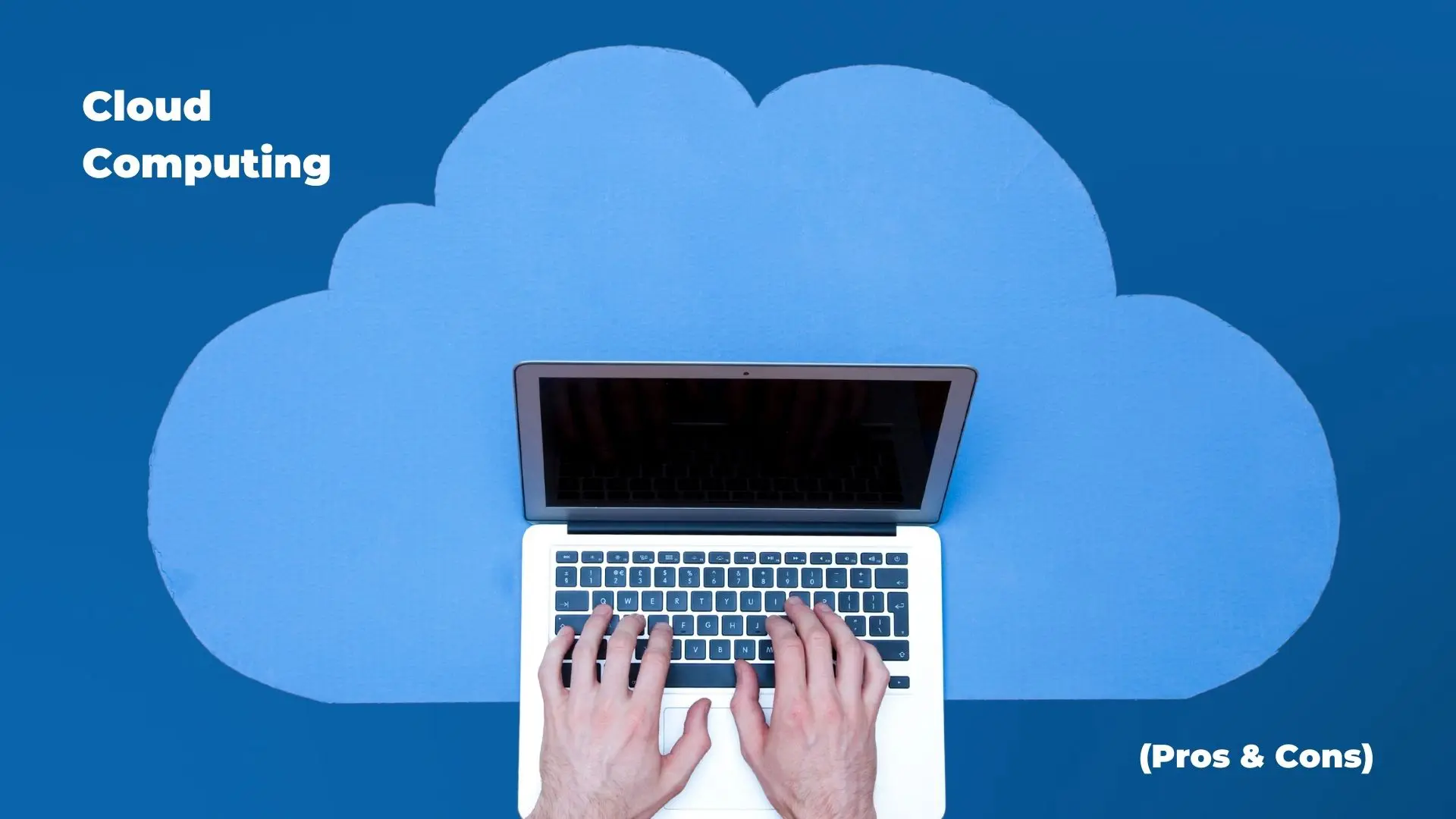In today’s digitally driven world, cloud computing has emerged as a game-changer for businesses of all sizes. This innovative technology offers a range of benefits that can significantly impact an organization’s operations, efficiency, and overall success. However, like any technology, cloud computing comes with its set of advantages and disadvantages. In this article, we’ll explore the pros and cons of cloud computing to help you make informed decisions for your business.
Benefits of Cloud Computing
Cloud computing offers a multitude of advantages that can revolutionize the way businesses operate and individuals utilize technology. Take a look at the following pros:

- Enhanced Flexibility and Scalability: Cloud computing allows businesses to scale their resources up or down as needed. This flexibility is especially beneficial for companies with fluctuating demands, as it eliminates the need to invest in physical infrastructure that may go unused during low-demand periods.
- Cost Savings: One of the most appealing aspects of cloud computing is its potential for cost savings. With cloud services, businesses can avoid the upfront costs of purchasing and maintaining hardware and infrastructure. Instead, they pay only for the resources they use, making it a cost-effective solution for organizations of all sizes.
- Accessibility and Remote Work: Cloud computing enables easy access to data and applications from anywhere with an internet connection. This accessibility is particularly advantageous in today’s remote work environment, allowing employees to collaborate seamlessly and access critical information without being tied to a specific physical location.
- Disaster Recovery and Data Backup: Cloud providers offer robust disaster recovery and data backup solutions. In the event of a hardware failure or data loss, businesses can quickly recover their data from the cloud, minimizing downtime and potential financial losses.
- Automatic Software Updates: Cloud providers handle software updates automatically, ensuring that businesses always have access to the latest features and security patches. This eliminates the need for manual updates and reduces the risk of vulnerabilities.
- Environmentally Friendly: Cloud computing is not only advantageous for businesses but also for the environment. By sharing resources across multiple users, cloud services can reduce energy consumption and minimize the carbon footprint associated with running physical data centers.
Advantages of Cloud Computing
The advantages of cloud computing are vast, from cost savings and scalability to enhanced collaboration and accessibility. For example:

- Scalability and Resource Allocation: The scalability of cloud computing allows businesses to allocate resources efficiently. Whether they need to scale up to meet increased demand or scale down during periods of low activity, cloud services provide the necessary flexibility.
- Global Accessibility: Cloud services enable global accessibility to data and applications. This is particularly beneficial for businesses with multiple locations or a geographically dispersed workforce. Users can access information from anywhere in the world, fostering collaboration and productivity.
- Cost Management: The pay-as-you-go model of cloud computing helps businesses manage costs effectively. Instead of investing in expensive hardware upfront, organizations pay for the resources they actually use. This makes cloud services a cost-efficient option for businesses seeking to optimize their budget.
- Security Measures: Reputable cloud providers implement stringent security measures to protect user data. This includes encryption, multi-factor authentication, and regular security updates. These measures help safeguard sensitive information from potential threats.
Cons of this Cloud Technology
While cloud computing brings numerous benefits, it’s important to consider potential drawbacks such as security concerns and data privacy issues.

- Data Security and Privacy Concerns: While cloud providers invest heavily in security measures, concerns about data breaches and unauthorized access persist. Businesses must carefully evaluate the security measures of their chosen provider and take steps to secure their data.
- Dependence on Internet Connection: Cloud services rely on a stable internet connection. Any disruptions in connectivity can impact access to data and applications, potentially causing disruptions in business operations.
- Downtime and Service Outages: Even reputable cloud providers can experience downtime or service outages. Businesses need to have contingency plans in place to mitigate the impact of such disruptions on their operations.
- Limited Control: With cloud computing, businesses relinquish some control over the underlying infrastructure. This can be a concern for organizations with specific compliance requirements or those that need greater control over their environment.
Comparing Edge Computing vs Cloud Computing
Explore the differences between edge computing and cloud computing to determine which technology best suits your business needs. Here’s a simple comparison chart between Edge Computing and Cloud Computing:
| Aspect | Edge Computing | Cloud Computing |
| Location of Processing | Data processing occurs closer to the data source | Data is processed in remote data centers |
| Latency | Minimal latency due to proximity to data source | Slightly higher latency due to data transfer |
| Bandwidth | Lower bandwidth requirements | Higher bandwidth requirements for data transfer |
| Data Privacy | Enhanced data privacy due to local processing | Relies on data center security measures |
| Scalability | Limited scalability for complex tasks | High scalability with virtual resources |
| Real-time Applications | Well-suited for real-time applications | May have latency issues for real-time tasks |
| Cost Efficiency | Costlier for larger-scale data processing | Cost-effective for large-scale computing |
| Connectivity Requirements | Requires reliable network connectivity | Less reliant on high-speed connections |
| Use Cases | IoT devices, edge analytics, remote locations | Web applications, storage, data analytics |
Conclusion
Cloud computing offers a host of benefits and advantages that can revolutionize the way businesses operate. The enhanced flexibility, accessibility, and cost savings make it a compelling choice for organizations seeking to optimize their IT operations. However, it’s important to weigh these benefits against the potential downsides, such as data security concerns and dependence on internet connectivity. By carefully evaluating your business needs and considering both the pros and cons, you can make informed decisions about incorporating cloud computing into your organization’s technology strategy.
- Maximize Efficiency: The Ultimate Guide to IT Outsourcing Services - March 26, 2024
- Coding Comfort: Finding the Best IDE for C++ Development - March 22, 2024
- The Fastest Programming Language Options for Accelerated Development - February 22, 2024






